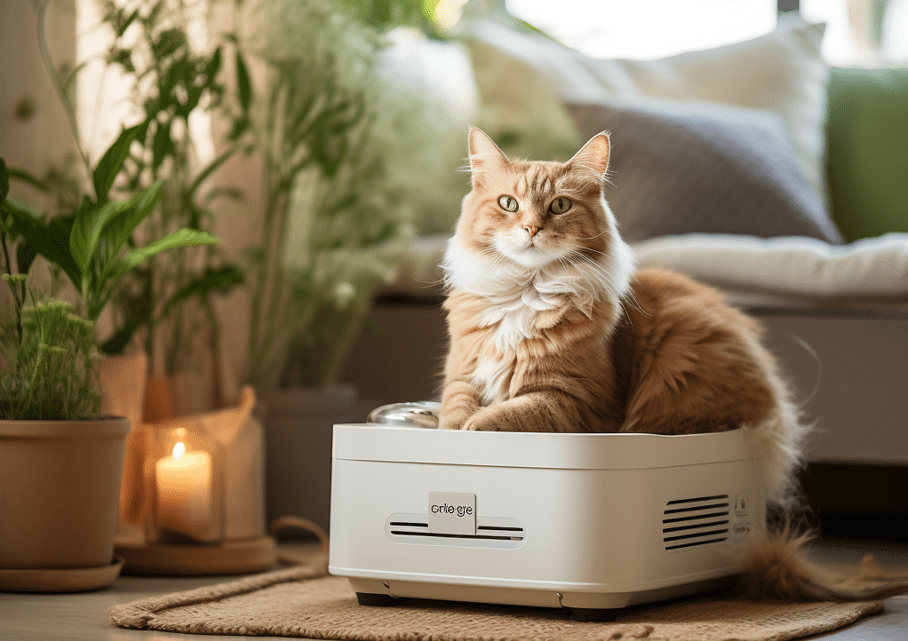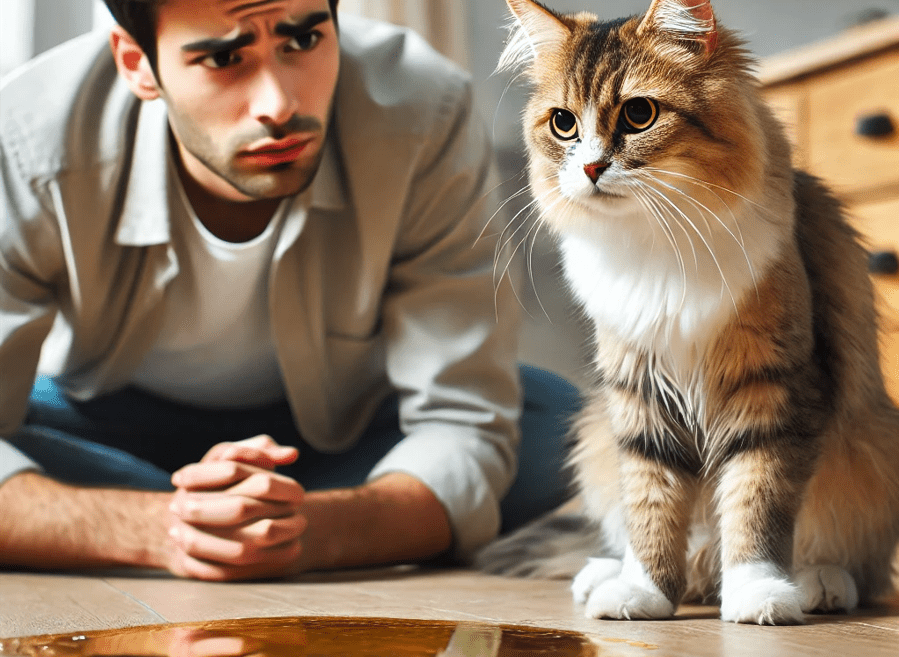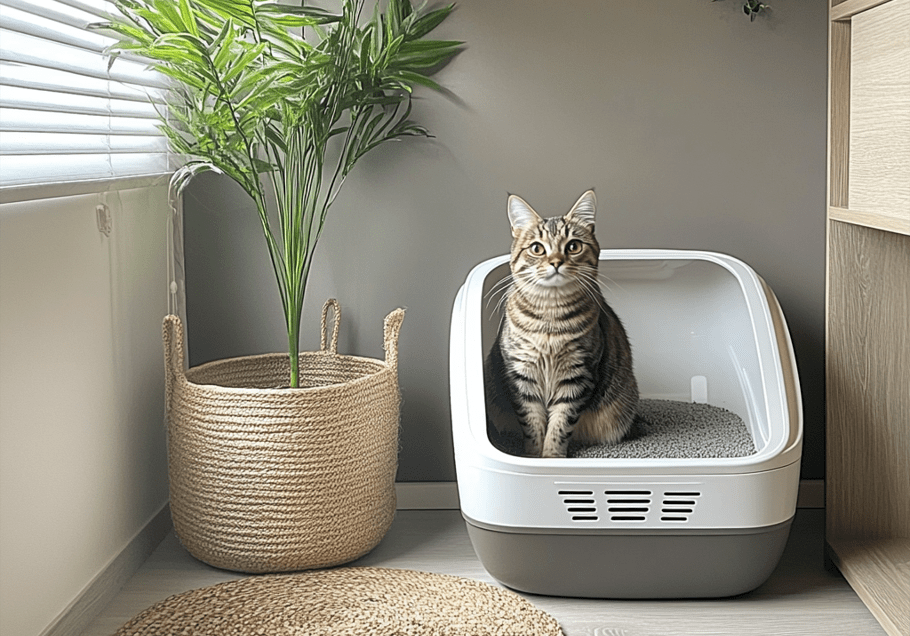
Keeping a litter box smelling fresh is a top priority for cat owners. However, it may not have been easy to get there without the proper plans. There are many factors that will affect the smell emitted from a litter box. In this guide, we’ll discuss a dozen effective vet-approved tips for keeping your cat’s litter box stink-free so that you and your pet both enjoy a healthy living space.
So if you want to prevent litter box smell for good, Follow these basic but highly effective tips to keep your cat house clean and fresh.
12 Tips for Reducing Litter Box Smells
1.Choose the Right Litter

There are multitude of cat litter types, textures and fragrances. The right litter is important not just for keeping your cat comfortable and preventing accidents outside the box, but it also makes cleaning easier, controls odors well, and matches your preferences. Finding the best litter for you and your cat might take some trial and error.
Many litters are marketed for controlling odor, but not all of them succeed. Some cats will walk around the strongly scented litter, while others are overwhelmed by the smell and make their surroundings smell bad.
Try different kinds of litter to see which ones work best. People are raving about this product because it neutralizes odors without using an overpowering fragrance.
2.Use a Litter Box Deodorizer
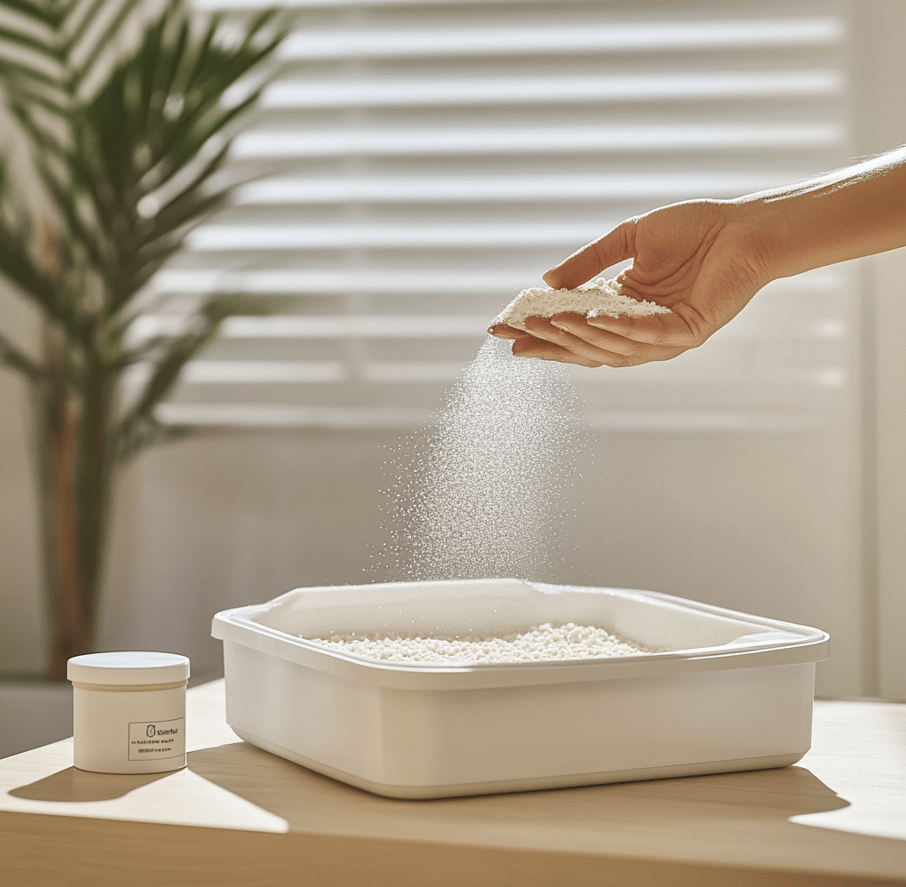
You might know about carpet deodorizers, but did you know about litter box deodorizers? These items are affordable, easy to find both on the internet and in pet stores, and can do wonders for reducing those unwanted litter box odors.
And since most litter box deodorizers consist of baking soda and other odor-neutralizing components, they tend to be inexpensive and multipurpose. They work with all kinds of litter; they also help prevent urine clumps from sticking to the box. Many deodorizers are moisture-activated, so each time your cat uses the litter box, it releases a fresh scent.
If smells return, an excellent litter box odor neutralizer can be a game changer when it comes to keeping your household fresh-smelling.
3.Clean the Litter Box Daily
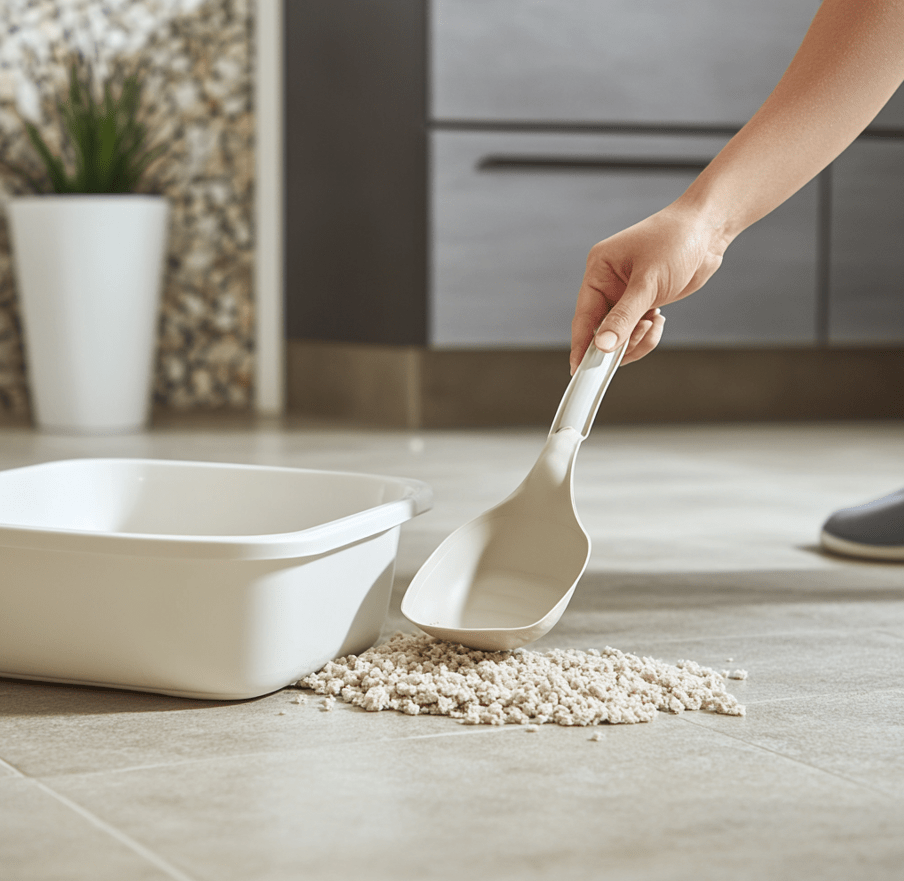
Regular cleaning will help keep awful smells from accumulating in the box. The more rubbish that builds up, the worse the smell will be. Daily litter box cleaning routine not only keeps the atmosphere fresh but also removes feces deposited by your pet.
If you’re looking for even better results, try scooping the litter two to three times a day. Regular cleaning not only helps you and the air in your home, but also gives your cat a clean, comfortable place to use.
4.Make Sure There Are Enough Litter Boxes
If you have the right number of litter boxes in your home, you can avoid having too many in a single box. As a general rule, there should be one litter box per cat in the household, plus one additional box. So, for example, if people have one cat, they should have two litter boxes; two cats should have three; three cats should have four, and so on.
Cats are inherently clean creatures and like a litter box that is not soiled. To help minimize odors and ensure that your cats have an adequate number of hygienic facilities available, make sure that you provide enough litter boxes.
5.Select a Litter Box with an Odor Filter
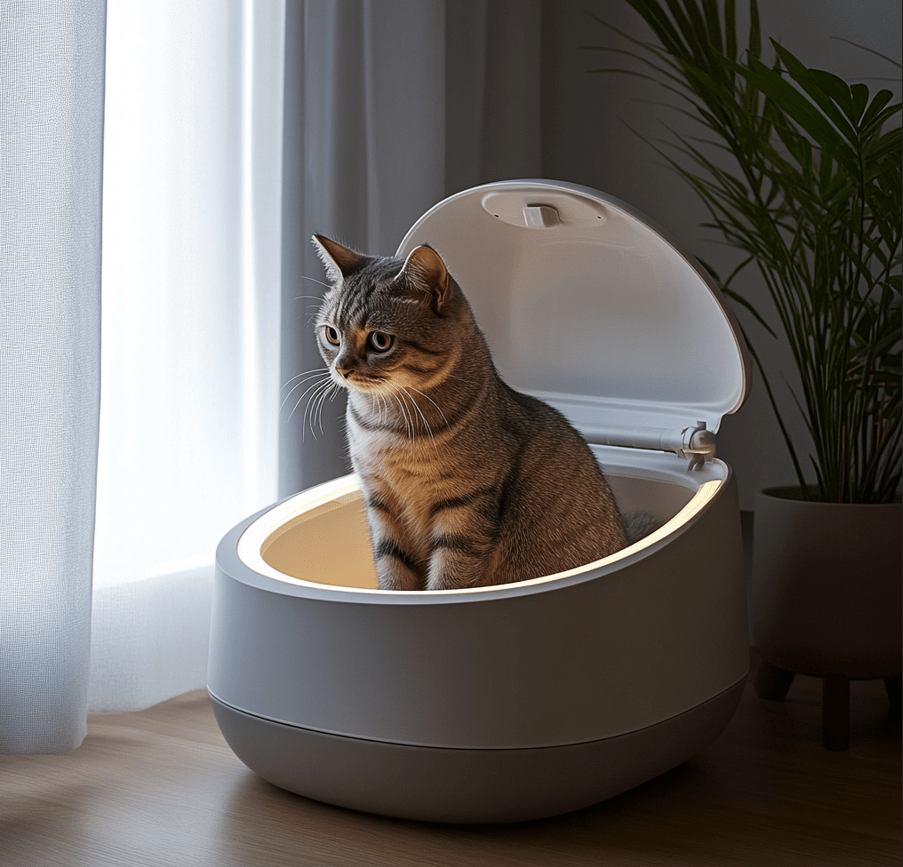
Some litter boxes have odor filters built into the box to absorb smells before they can spread. These filters are very effective in controlling soot and can be found on most covered litter boxes.
These filters need to be replaced regularly, as their effectiveness diminishes over time, however. Replacement filters can be purchased at retailers like Chewy and Amazon. Just make sure the filter you get will fit your particular litter box model.
6.Use Baking Soda
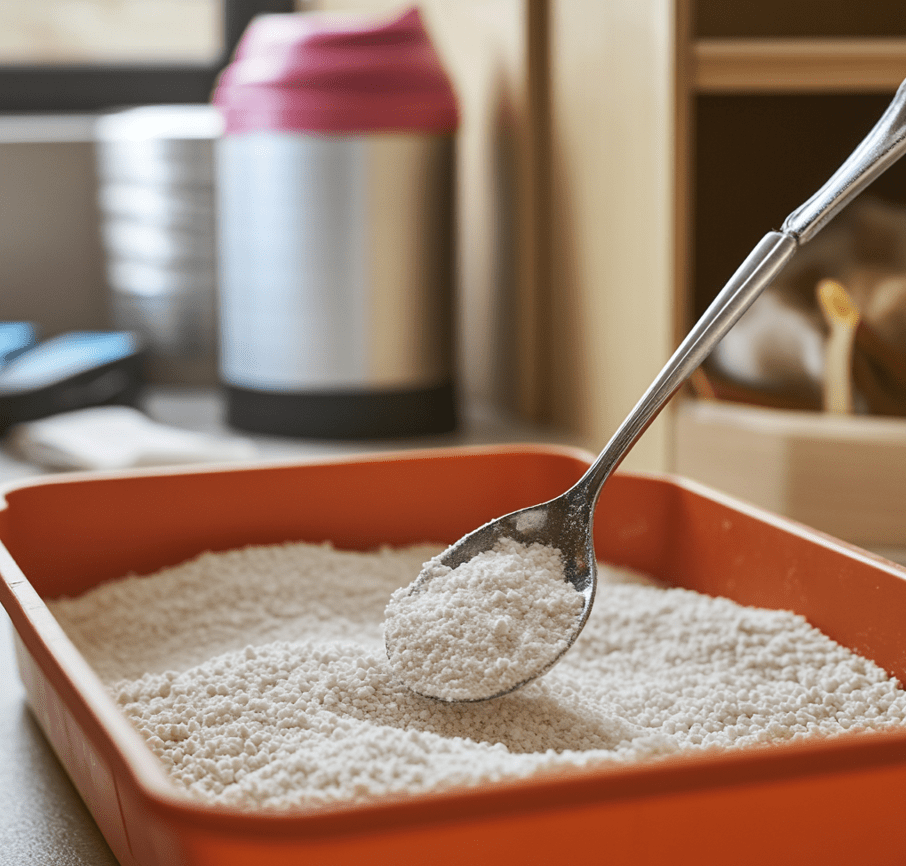
Baking soda is one of the least expensive and most effective options to control unsightly litter box odor. It’s a common ingredient in many commercial litter box deodorizers because it neutralizes odors and helps keep things fresh. If you don’t have deodorizer on hand, just scatter plain baking soda in the litter box. Baking soda is also relatively harmless and is unlikely to repel cats, as it doesn’t release heavy artificial smells that may be bothersome.
7.Maintain Hygiene in the Litter Box
To avoid lingering smells, it’s important to completely empty the litter box and wash it regularly. Cat urine is very pungent, and if it sinks into the box, that smell can be permanent. To prevent this, clean the litter box thoroughly every one to three weeks, depending on how many cats are in your home.
When you clean it, take out all the litter and wash the box well with soapy water. Dish detergent and baking soda are good for this. For obstinate smells, try an enzymatic cleaner, which effectively addresses odor-causing molecules.
8.Ensure Proper Ventilation
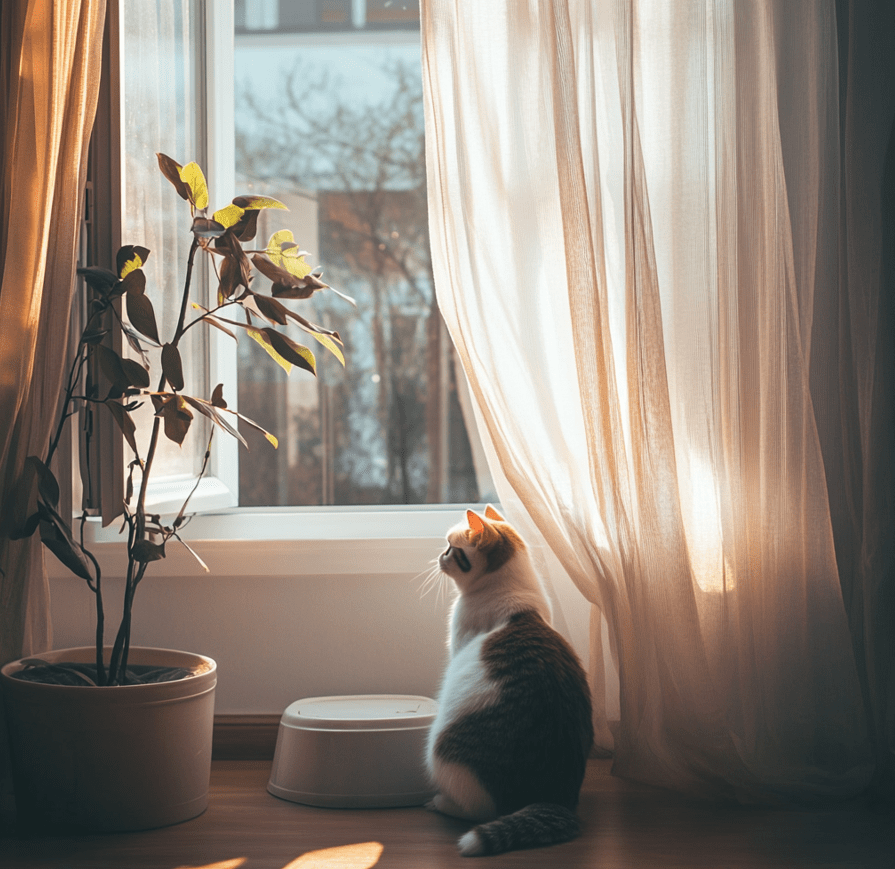
Putting the litter box in a small, closed-in area, like a closet or small bathroom, then may be convenient, but it can make odor problems worse. In confined spaces, poor ventilation seals in smells making them more pungent.
And to help reduce odors, place the litter box in a well-ventilated space. Good airflow disperses smells so your space is more pleasant, decreasing the chance you avoid the area due to a pungent scent.
9.Invest in an Air Purifier
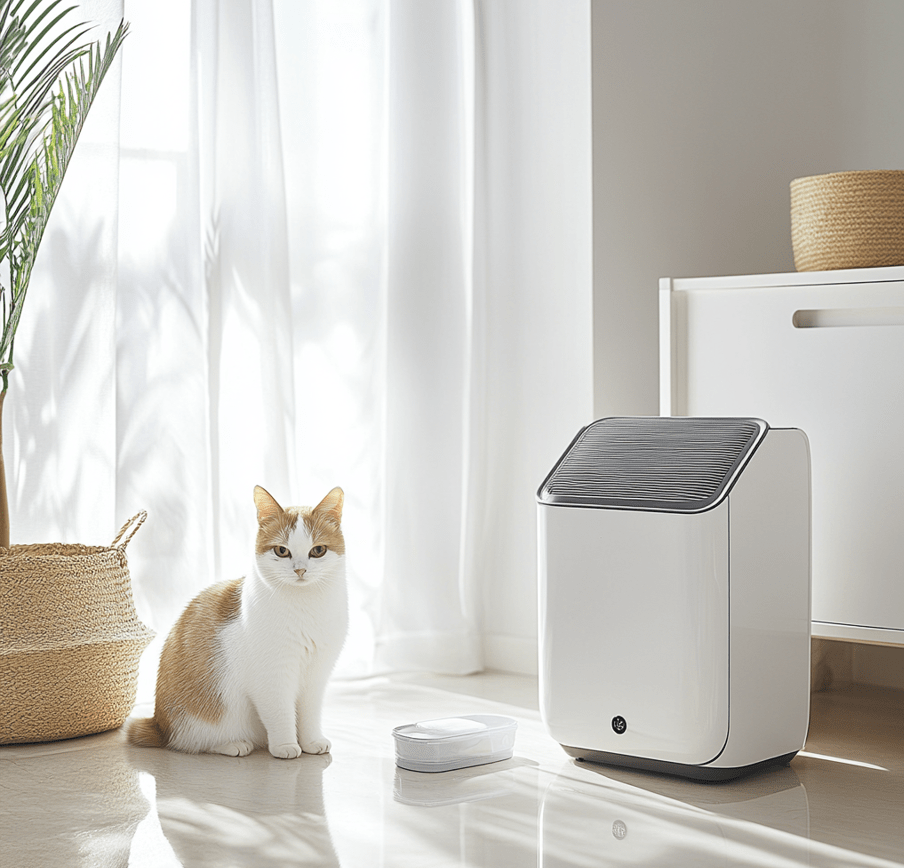
With all that in mind, an air purifier is a great thing to have in your home, both for health and comfort reasons. These devices filter out airborne contaminants, such as pet dander and litter box odors, to boost overall air quality.
For optimal results, look for an air purifier with a HEPA (high-efficiency particulate air) filter. HEPA filters, the most effective type of filter, capture 99.97 percent of particles (both large and small, with a size of 0.3 microns or more), allergens and odor-causing agents.
10.Address Messes Immediately
Another great way to prevent litter box smells is to clean up after your cat immediately. If you see that your cat has soiled the box, remove it as soon as possible to avoid the odor spreading.
Also vacuum up any litter that’s tracked outside of the box to keep the area sanitary. In the case of accidents in or outside the litter box, use an enzymatic cleaner to effectively break down and remove odors from carpets and other surfaces.
11.Replace Litter Boxes on a Regular Basis
Litter boxes get worn down over time. Over time, the ammonia in cat urine penetrates the material, and it becomes virtually impossible to fully remove the odor.
Most cat parents swap out a litter box for a new one every one to two years. But in general, with a continuing maintenance routine (like cleaning out often and giving it a comprehensive wash at least once a month), the litter box can last you years.
12.Try a Self-Cleaning Litter Box

Self-cleaning litter boxes, while pricier than the standard variety, offer convenience. Alternatively, some models employ disposable trays that minimize scooping, cleaning or any contact with your cat’s waste.
Other automated litter boxes employ sensors to trigger a sifting mechanism immediately after your cat leaves the box. The only maintenance job in this case is emptying the waste tray. All self-cleaning litter boxes are designed to manage and reduce litter box odors in your home, regardless of the model you choose.

